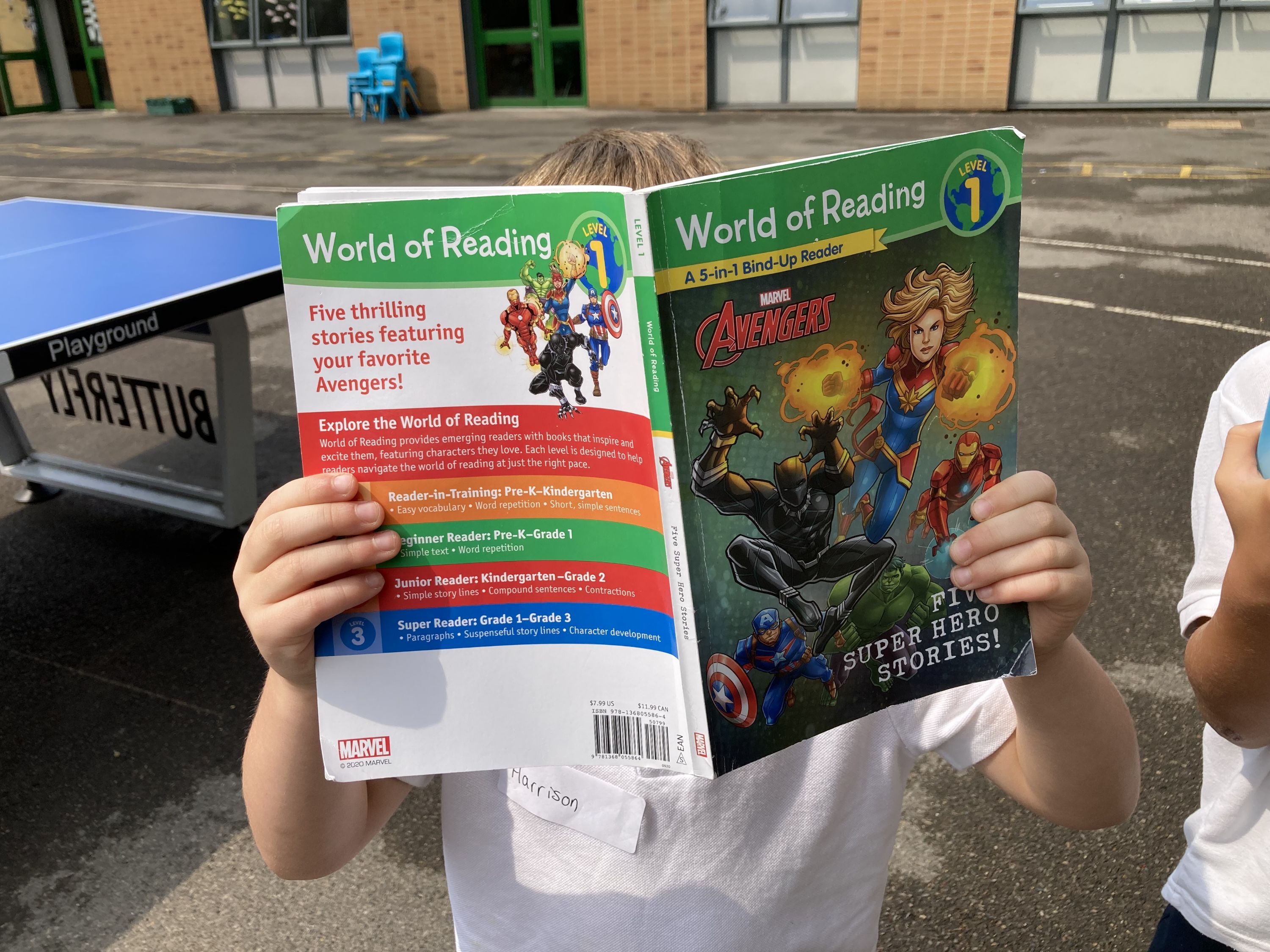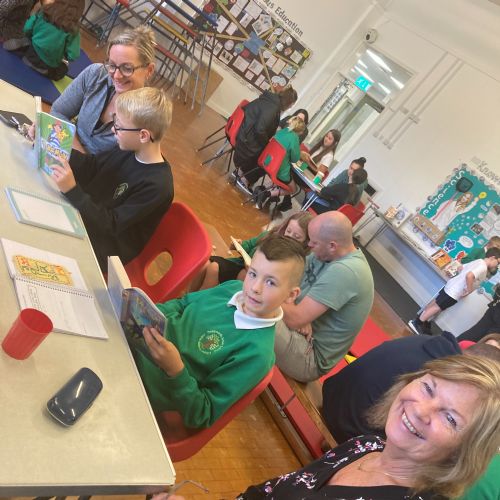Reading
At Freegrounds Junior School we want all children to establish an appreciation and love of reading at all stages in their learning journey. We believe that all pupils should have the opportunity to be fluent, confident readers who are able to successfully engage with and understand a wide range of texts across the whole curriculum. Our curriculum is designed so that alongside reading for pleasure, children develop the ability to use their reading skills to research and gather new knowledge and understanding about themselves and the world around them. By the time children reach the end of Year 6 we want them to read fluently and with confidence across all genres so that they are fully prepared for the next stage in their education.
Reading skills are taught explicitly within our English learning journeys and during our supplementary Reading sessions which happen at least three times a week in all year groups. All children read, and are read to, daily.
Reading within English Learning Journeys:
Our English learning journeys are driven by high-quality texts and video clips. Some English sessions within the learning journey are dedicated to the development of key reading skills using these texts. The children are aware of these skills – vocabulary, inference, prediction, explanation and summarise – and often refer to them as VIPERS.
Book Talk/Reading Sessions:
In addition to English sessions, the children take part in dedicated reading lessons. These sessions focus on developing key reading skills including decoding, prosody and comprehension skills. One lesson per week is dedicated to developing decoding and fluency. During these lessons, teachers model fluency and children participate in paired and group reading of the same text to develop their decoding and prosody when reading age-appropriate texts. New or more complex vocabulary or phrases that feature in the text are taught and discussed. In the remaining reading sessions, children are taught to use reading skills such as skimming and scanning to retrieve information from a text, along with how to use what they read to make inferences, predictions, explanations and summaries.
Reading for Pleasure:
Reading for pleasure is very important at Freegrounds Junior School and children have plenty of opportunities to read books they have chosen. Daily ERIC (Everyone Reads in Class) sessions happen across the school and children have regular access to the school library to choose books. In addition to this, all classes have a class novel which is read to the children daily. Although core texts are selected to be age-appropriate and diverse, there are opportunities for pupils to express their preferences when the class text is selected, and for shorter poetry and picture books to be used as additional class reads.
Teachers model positive attitudes to reading, sharing their own love of reading and making recommendations to pupils based on their individual likes and dislikes. Our school librarian and English lead regularly share updates around current children's fiction and non-fiction and provide supporting resources for class teachers.
Children regularly select two books from our well-stocked and up-to-date school library. One of these books is pitched at the appropriate level for the child’s decoding abilities and is referred to as their ‘reading book’. This book is for them to read on their own or to an adult, to allow them to practise their decoding and prosody without the hindrance of too many unfamiliar words. The second book is a free choice and is chosen purely for pleasure. Children are able to take their school library book home and are encouraged to read at home as regularly as possible. If children record a minimum of five reads a week in their home-school diary, they are entered into a weekly reading raffle.
Reading Challenge
For every 20 reads that children record in their home-school diary, they earn an independence effort mark and their names move up the classroom reading stars. A Bronze Reading Award is awarded for 50 recorded reads, a Silver Reading Award for 100 recorded reads and a Gold Reading Award for 300 recorded reads. Gold Award holders also receive a token to spend in our book vending machine.
Supporting Reading at Home
Parents can support their child’s reading at home by listening to their children read aloud and asking questions linked to VIPERS. These sentence stems are a good resource for questioning at home:
Reading At Home Question StemsDownload
Library resources (for more ideas of what to read and access to our online library subscription)
Phonics
We use Little Wandle Letters and Sounds Revised for our phonics teaching.
Paired Reading
We use paired reading to support some of our less-fluent readers who are no longer working through our phonics scheme. It is an easy strategy for parents to use at home with their children.
Reading Book Progression
Children are able to choose two books from the library each week. One book should always be matched to their current reading level.
This means that children should:
- Know all the sounds and tricky words in their phonics books.
- Read many of the words by silent blending (in their head) – their reading will be automatic.
- Only need to stop and sound out about 5% of the words (by the time they bring the book home, they should be able to do this on their own).

Additional Opportunities to Celebrate and Promote Reading
World Book Day
Every year, we celebrate World Book Day with a whole-school theme day centred around reading for pleasure. Last year, children and teachers came to school dressed as a range of book characters. Every class read 'The Proudest Blue' by Ibtihaj Muhammad and S.K. Ali and 'I Don't Like Poetry' by Joshua Seigal, before completing a range of activities based on these.
Author Visits
Every year, we welcome at least one visiting author who shares their books with the whole school before conducting workshops with selected groups of pupils. Our most recent visitor was the poet Josua Seigal.
Reading Cafe
Every term, we host Reading Cafes where parents and carers are invited to come into school and read with their child. All children attend the Reading Café, even an adult is unable to join them. Additional adults from around the school, as well as our team of pupil Reading Ambassadors, are on hand to read with children, support paired reading between children and offer book recommendations.
Hampshire Libraries Book Awards
In Year 4, we take part in the Hampshire Information Book Award and in Year 5, the Hampshire Illustrated Book Awards. These provide special opportunities for children to explore a range of books which they read, discuss and give opinions on, before finally voting for their favourite and contributing to the outcome of the awards.







